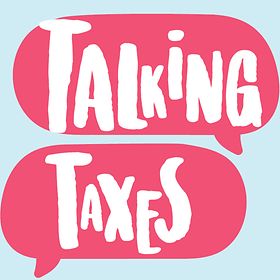Even though we’re not yet in April, taxes should be talked about and discussed in all collaborative meetings you have over the next two months. Here are some quick issues that come up for any couple contemplating divorce in Florida and taxes:
- Filing joint or filing separate? Many times, one spouse wants to file separate because of unknown issues or suspected unknown issues with a return or past filings. While Innocent Spouse Relief is certainly available, be wary that the burden to prove innocent spouse is very high and that any spouse signing a return has a “duty of inquiry” that supersedes any lack of knowledge on tax issues. See a great discussion on Innocent Spouse in Tax Court Memo 2019-55 (link here). Besides innocent spouse, the typical request for filing jointly is the tax savings. Assuming only standard deductions and 2020 tax rates, a married couple with an adjusted gross income of $100K pays about $9,500 in tax versus about $15K in taxes if the same adjusted gross income was taxed at the single rate. However, if both parties make $50K each, they’d actually save money filing separately. So, this must be evaluated on a case-by-case basis.
- Abandoned spouse rule. If the parties have been living apart at all times during the last 6 months of the year, they can be considered unmarried for filing Head of Household if they can claim the qualifying child under the rules (see Publication 504).
- Extensions. The easiest solution for disputed taxes in the mean time is to simply file an extension. Despite popular believe, extensions are not listed as an audit factor by the IRS. In fact, many practitioners are adamant that filing an extension may actually decrease your risk of audit, but since no published data exists on the subject, it’s difficult to confirm. Regardless, as long as a proper estimated tax payment is made in April, an extension for a divorcing couple is a valid temporary solution that does allow time for more option building, etc. You can file an extension as joint filers and then file the return as separate or vice versa; you are not locked into one way or the other. The only thing to be careful of is the estimated payment; if you do not agree on the way to split it, the IRS typically assigns it to the first person listed on the 1040-ES coupon.
- Dependency exemptions. The dependency exemption still exists – believe it or not – as the new tax law merely reduced it to zero for a few years. It is subject to the sunset provisions of the new law, so if nothing changes, it returns to pre-2019 levels in 2026. For now, the only relevance to the dependency exemption is a qualified child for purposes of the child tax credit or head of household filing status. So, don’t forget the language on who gets the dependency exemption and make sure Form 8332 is completed (the IRS will no longer accept copies of written agreements on this; you must use the form – see the instructions for the form).
Take away? Make sure you talk about taxes now so it can be properly planned for and doesn’t become an emergency in your collaborative case. The financial neutral can give guidance, but each party truly needs to meet with and discuss with his/her own tax advisor. I would recommend the tax advisors be given permission to talk to the financial neutral so there is no confusion on what is being recommended. And since most CPAs are cooped up madly entering tax return data from around mid-February to mid-April, make sure you talk to them now!

Adam T. Magill , MBA, CBA, CVA, MAFF
Adam is a practical-orientated financial expert who enjoys creative problem solving in both seemingly simple and complex cases. He tackles challenges head-on while maintaining a high level of prudence. In addition, Adam’s work history in business valuations, public accounting, private accounting, financial planning, investment banking, and as a broker enable him to offer insights and creative solutions to every case. Adam has participated in over 130 collaborative cases since being trained in 2008. Adam is owner of Valuation & Litigation Services, LLC and Collaborate Florida, LLC and has been serving in family law cases for over 20 years.







